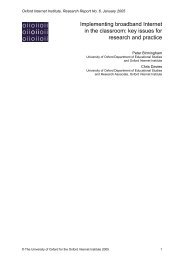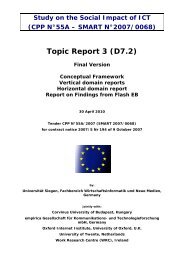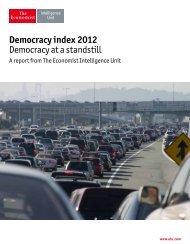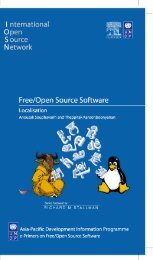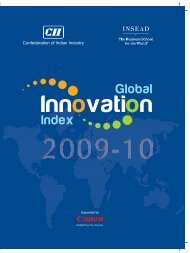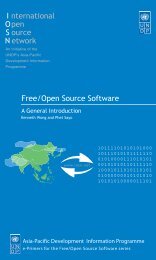1 PUBLIC POLICY FOR A KNOWLEDGE ECONOMY Joseph E ...
1 PUBLIC POLICY FOR A KNOWLEDGE ECONOMY Joseph E ...
1 PUBLIC POLICY FOR A KNOWLEDGE ECONOMY Joseph E ...
Create successful ePaper yourself
Turn your PDF publications into a flip-book with our unique Google optimized e-Paper software.
Princeton, on the outskirts of New York, where the culture of Wall Street cast its long<br />
shadow, to teaching at Stanford, and then on to Washington. One really felt the<br />
entrepreneurial spirit at Stanford. In the corridors and restaurants, there was constant talk<br />
of new enterprises, translating the advances in ideas into new products and new<br />
businesses. Venture capital firms sought out these new opportunities, providing not just<br />
with capital, but with managerial know-how. The focus was on creativity and wealth<br />
creation, not on the rearrangements of the use of already existing assets and corporations,<br />
the take-overs and mergers, the corporate restructurings that were so much the center of<br />
attention on Wall Street. There is no prescription for how a country creates such a<br />
culture, just as there is no prescription for how a corporation can create such a culture.<br />
But government does have a role— a role in education, in encouraging the kind of<br />
creativity and risk taking that the scientific entrepreneurship requires, in creating the<br />
institutions that facilitate ideas being brought into fruition, and a regulatory and tax<br />
environment that rewards this kind of activity. In the discussion below, I shall focus more<br />
narrowly on the technical, economic aspects of government policies, but I cannot<br />
emphasize enough my belief that the full benefits of these reforms will only be felt if there<br />
is a more fundamental change in culture.<br />
Before moving on to a fuller discussion of these technical issues, let me spend a<br />
few more moments dwelling on the central role of institutional and cultural change in the<br />
creation of a knowledge economy, focusing on our experiences in transferring knowledge<br />
to less developed countries.<br />
Tacit Knowledge and Local Adaptation<br />
The Analytical Background Report 5 recognizes the importance of non-codified or<br />
tacit knowledge and the difficulties in transferring it. Indeed, it is precisely the difficulties<br />
in transferring a company’s tacit knowledge base embedded in its staff that can be a basis<br />
for the company’s competitive advantage. But viewed the other way around, this means<br />
that transferring tacit knowledge is a substantial obstacle to those of us in the economic<br />
5 Department for Trade and Industry (1998b).<br />
4




